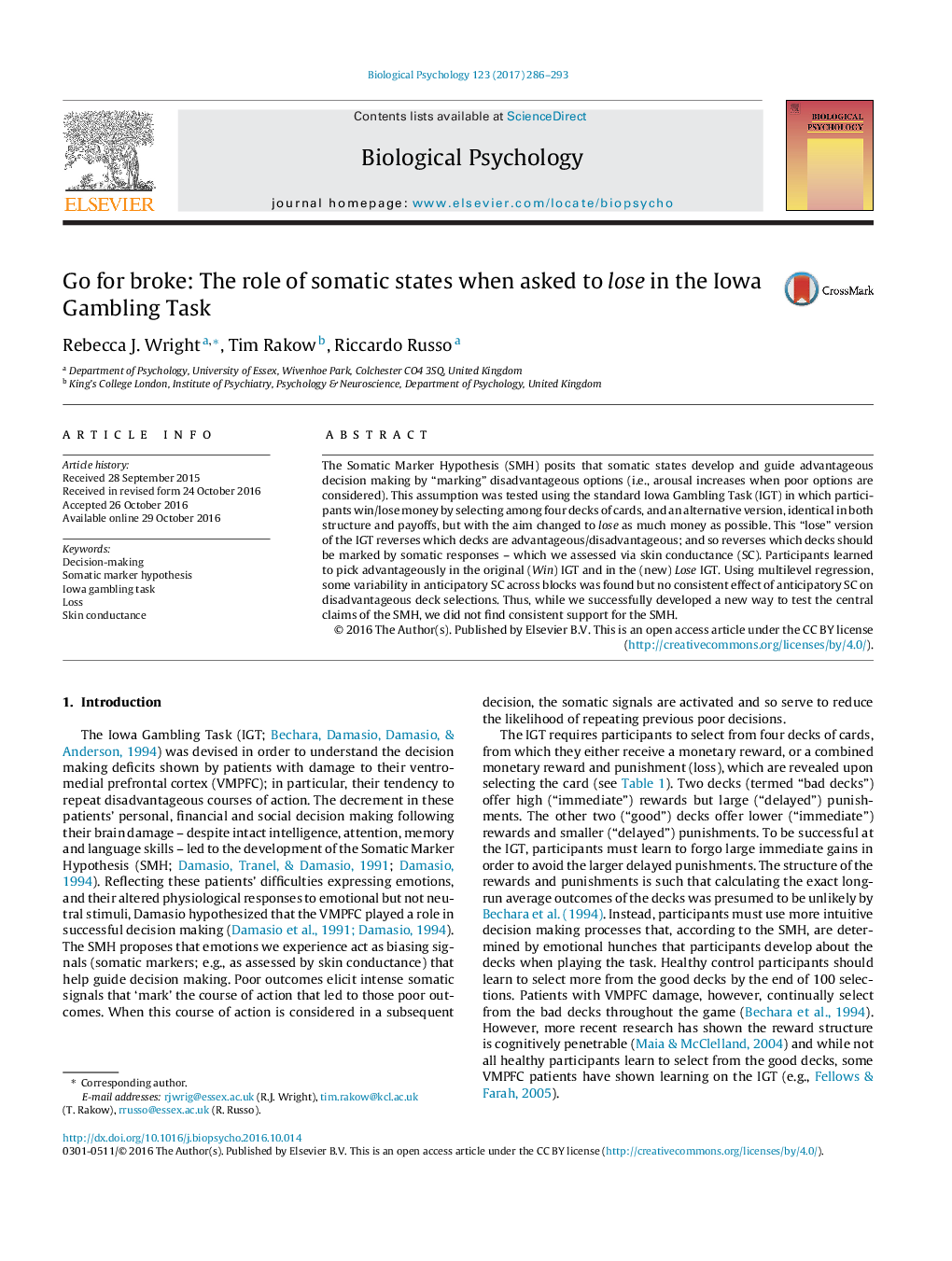| کد مقاله | کد نشریه | سال انتشار | مقاله انگلیسی | نسخه تمام متن |
|---|---|---|---|---|
| 5040549 | 1473851 | 2017 | 8 صفحه PDF | دانلود رایگان |
- We test the Somatic Marker Hypothesis using a novel “Lose Iowa Gambling Task”.
- The Lose version reverses the predictions about the development of somatic markers.
- People learn in both IGTs but the pattern of preferences does not simply reverse.
- Higher skin conductance for outcomes not conducive with current goal in “Lose IGT”.
- Support for the pivotal claim skin conductance guides decision making was not found.
The Somatic Marker Hypothesis (SMH) posits that somatic states develop and guide advantageous decision making by “marking” disadvantageous options (i.e., arousal increases when poor options are considered). This assumption was tested using the standard Iowa Gambling Task (IGT) in which participants win/lose money by selecting among four decks of cards, and an alternative version, identical in both structure and payoffs, but with the aim changed to lose as much money as possible. This “lose” version of the IGT reverses which decks are advantageous/disadvantageous; and so reverses which decks should be marked by somatic responses - which we assessed via skin conductance (SC). Participants learned to pick advantageously in the original (Win) IGT and in the (new) Lose IGT. Using multilevel regression, some variability in anticipatory SC across blocks was found but no consistent effect of anticipatory SC on disadvantageous deck selections. Thus, while we successfully developed a new way to test the central claims of the SMH, we did not find consistent support for the SMH.
Journal: Biological Psychology - Volume 123, February 2017, Pages 286-293
